From April 27 to May 2, 2018, together with the staff of China's Traditional Village Protection and Development Research Center at Tianjin University, Professor Feng Jicai, a counselor to the State Council, Chairman of the Expert Committee for the Protection and Development of Chinese Traditional Villages, Chairman of the Expert Committee of the National Non-material Cultural Heritage List and a famous writer, paid a visit to the Miao and Dong Autonomous Prefectures of southeast Guizhou Province, and field surveyed Taijiang County, Leishan county, Jinping County, Liping County, Rongjiang County and other places to review the status and development of traditional villages and folk culture.
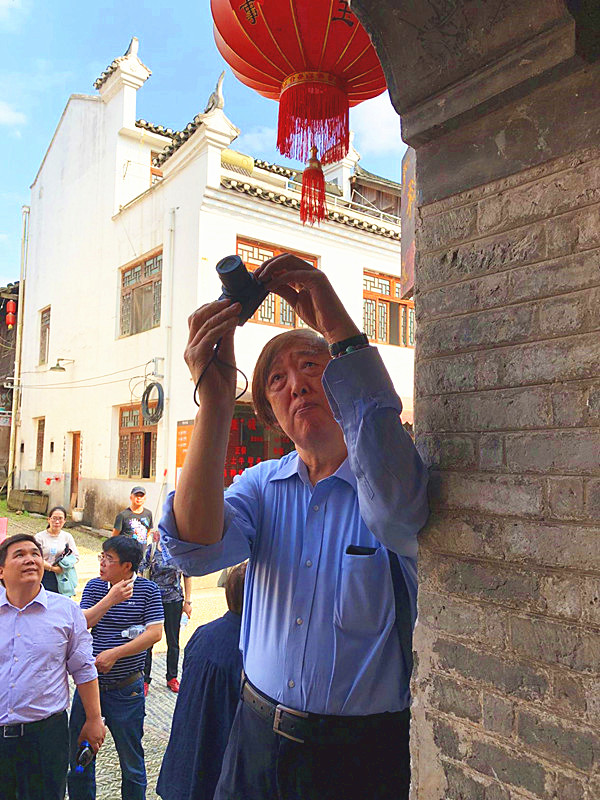
Professor Feng in the field survey
As early as 2003, when the Chinese folk cultural heritage rescue project was initiated, Professor Feng conducted a systematic investigation of villages of southeast Guizhou Province. The past 15 years have witnessed Professor Feng’s special attention to folk culture, especially the traditional villages inhabited by ethnic minorities. He once said, “As a big family, the Chinese nation should never let the ethnic minorities disappear. They live in their own cultures. If their villages are lost, the culture will disappear, which will be a great lost for the country."
During the visit, Professor Feng visited the villages that had been selected for the National Traditional Village List, and observed their existence and development status. Professor Feng also visited the villages that are not included in the List but now have active applications and maintain a complete form and life style, and those villages with the potential as eco-museums and for tourism.
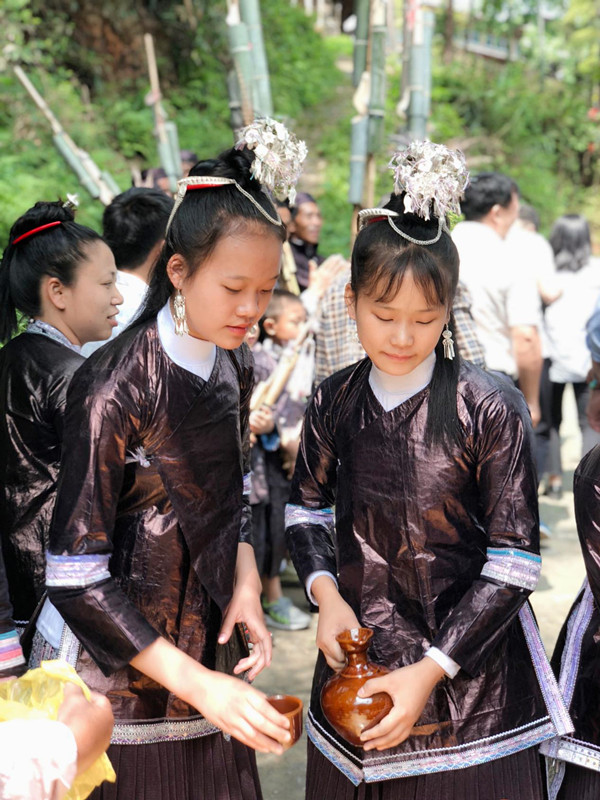
A dressed up maiden of Miao minority
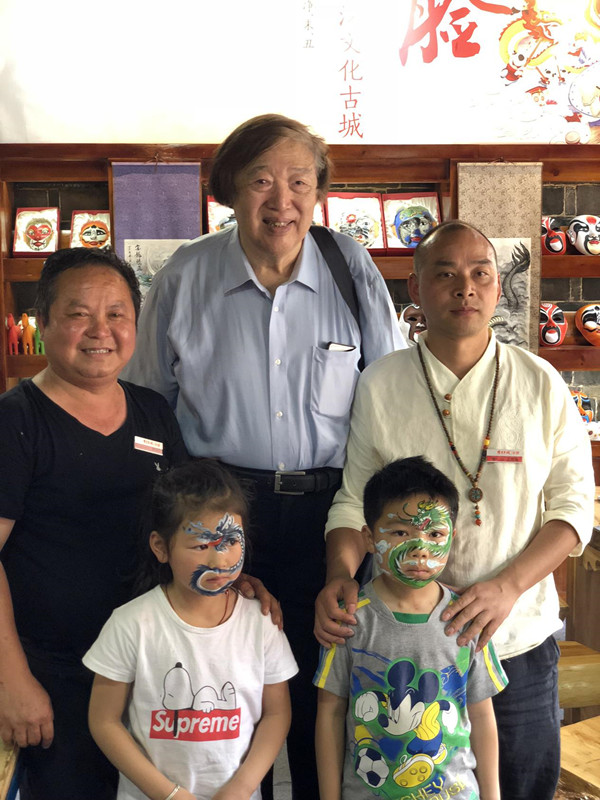
Professor Feng with the folklore dragon face inheritor
The investigations of villages which have been selected for the National Traditional Village List mainly focused on the two villages of Leishan County and one village of Liping County. These three villages have developed in tourism due to early public attention. Professor Feng has long believed that tourism is ‘a double-edged sword’ and should be guided by a scientific and sustainable outlook. The government, developers and exporters should bear in mind how to ensure the locals enjoy the convenience of modern life. When it comes to tourism development, we should treat the culture of minority groups with respect rather than a way to make profits. Professor Feng also watched the folk performances in the central area of Lande Village.
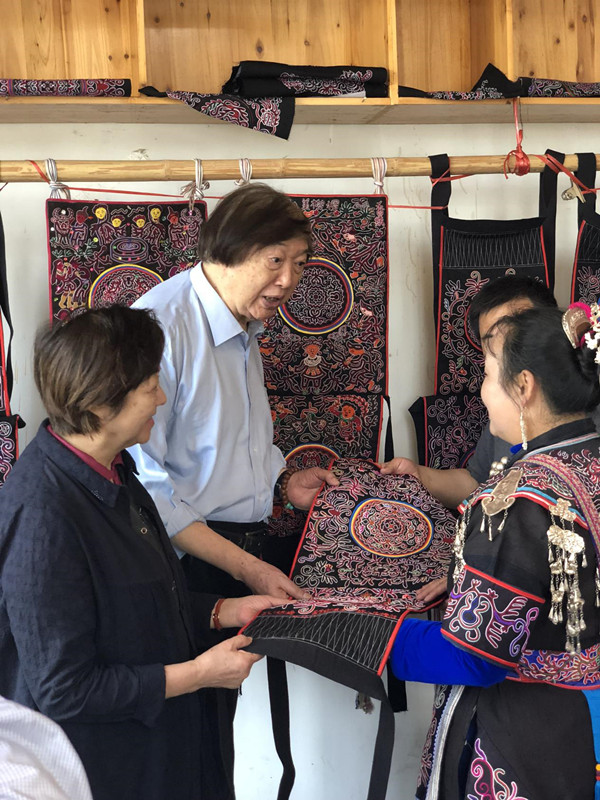
Professor Feng talks with Long Lingxiang, the national inheritor of Dong embroidery.
For villages that were not on the list, Feng investigated villages in Jinping County and Rongjiang County. During the visit to Jiuzhai Dong Cultural Museum in Jinping County, Professor Feng talked with Long Lingxiang, the national inheritor of Dong embroidery. He inquired in detail about the protection and inheritance of the intangible cultural heritage of Dong embroidery. In Sanpan village, Professor Feng listened to the traditional folk songs performed by Miao people and he believed that the ancient songs of the Miao group are the "living fossils" which best reflect the regional culture. He also impressed by the simple and lovely eyes of Miao girls.
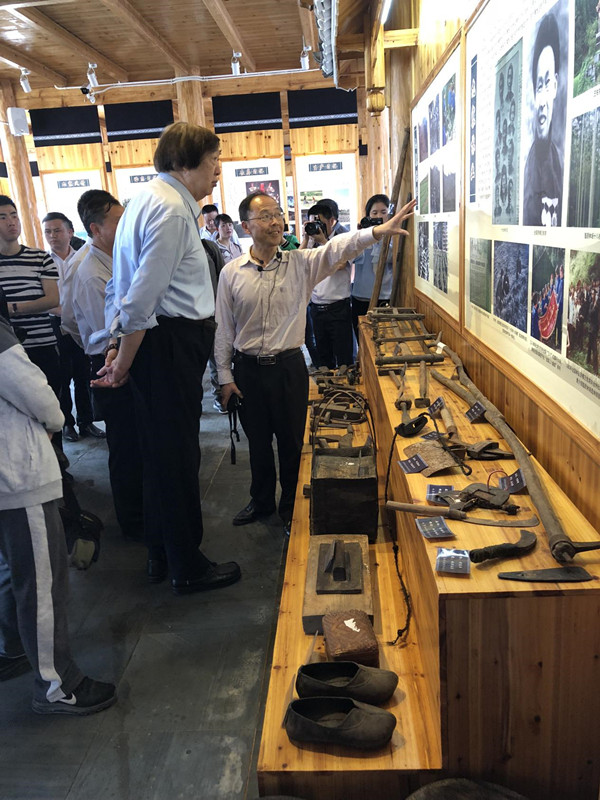
A visit to the Jiuzhai Dong Cultural Museum in Jinping County
Whether the Eco-museum protection model can be compatible with local reality in China has always been a concern for Professor Feng. The concept of the Eco-museum was derived from France in 1970s. Up to now, there are more than 300 Eco-museums in the world, and 4 are in Asia, all concentrated in Guizhou, China. As a new way of protection for the natural and cultural heritage, the Eco-museum considers the community as a whole, which records and protects the natural environment and cultural essence in various ways, and promotes community development. After the visit, Feng holds that in the development of tourism, we should present things that can most reflect the nature of our traditional ethnic culture.
In this trip to Guizhou, Professor Feng also attended many other cultural events held by local governments and organizations. Professor Feng expects members of the Center to conduct in-depth research and tap into more scientific methods of protection.
By: Cao Yizhong
Editors: Sun Xiaofang and Ross Colquhoun






